Insights
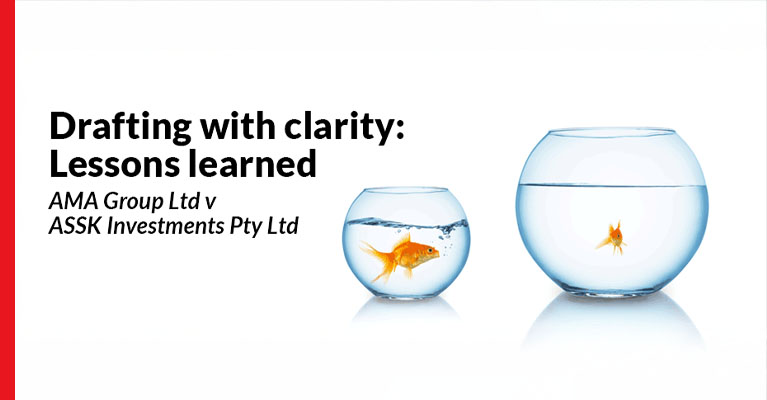
Whiplash! NSW Court of Appeal overturns specific performance of heads of agreement for sale of smash repair business: AMA Group Limited v ASSK Investments Pty Limited
The NSW Court of Appeal has overturned a Supreme Court decision ordering specific performance of a heads of agreement for a business sale, finding that board approval was a condition precedent that had not been satisfied. The case is a reminder of the importance of clear drafting when entering into preliminary transaction documents. Background AMA Group Limited ( AMA ) is an ASX-listed panel shop and car repair company...

New Environment Protection Laws in Victoria to Protect Public Health and the Environment
Substantial amendments to the environment protection statutory framework in Victoria commence on 1 July 2021. The amendments to the Environment Protection Act 2017 (EP Act 2017) replace the statutory framework of the Environment Protection Act 1970. The new statutory regime represents the largest change to environment protection laws since the introduction of the 1970 Act. Planning and Environment Victoria has been...

Sharing Risk: Why intellectual property insurance is a must for modern business
In July 2019, almost 4 years after the filing of the first infringement suit, a nine-member jury rendered its verdict in favor of Marcus Gray’s claim that Katy Perry, a pop megastar, had improperly copied Gray’s song “Joyful Noise” in her hit “Dark Horse”. The price tag of this legal battle between Marcus Gray and Katy Perry, which also involved their respective teams, by far exceeded the awarded damages and the blight...

Sexual Harassment and Work Health and Safety
Sexual harassment in the workplace has received increased public attention in recent years in the wake of the MeToo movement. The courts have also shown a willingness to award substantial damages in sexual harassment claims, recognising the significant physical and psychological impact of the harassment on the victims. For example, $170,000 was awarded to a paralegal who was subjected to persistent and threatening harassment...

How to protect your IP without making a groundless or unjustified threat
One of the most common and effective means of a party acting to protect its intellectual property (IP) is by sending (or having a lawyer send) a letter of demand, with such letters forming a key part of the day-to-day practice of many IP lawyers. However, these letters, and other communications that put potential infringers on notice of an IP right, run the risk of contravening the unjustified threats (or groundless threats...
To pay or not to pay: The rise of ransomware in 2021
Over the last 18 months, there has been a rise in ransomware attacks, impacting businesses both domestically and globally. Dudley Kneller, Partner at Gadens, defines what is ransomware, outlines what does an attack look like, cites recent examples and concludes with some tips and takeaways on how to reduce risk to your organisation from ransomware attacks.

Buying off the plan? A lesson in contract specificity
The NSW government introduced new disclosure requirements for developers entering into off-the-plan contracts for residential developments from 1 December 2019. A Disclosure Statement is now required to be attached to a contract for sale that includes information such as sunset dates, whether development approval has been obtained and details of any strata scheme, community precinct or neighbourhood scheme the lot may...
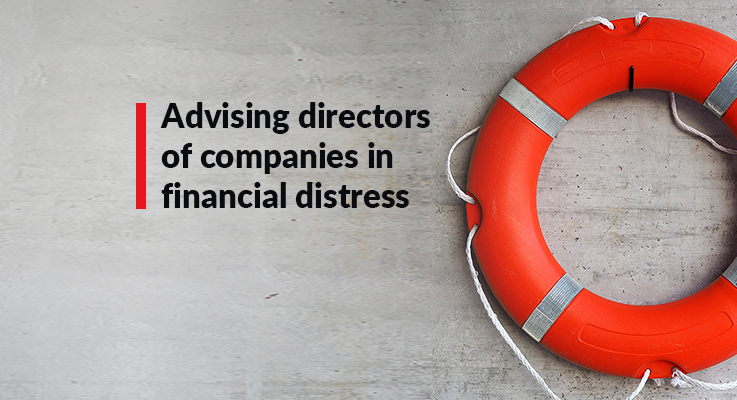
Advising directors of companies in financial distress
With a flood of company insolvencies expected in 2021, lawyers will increasingly be asked to provide advice to directors of companies facing difficult decisions about the future of their businesses. We provide a checklist to assist with advising directors of companies in financial distress. Why do company directors need to act urgently? The temporary insolvency protections relating to insolvent trading liability and...

Alerting subscribers from all walks of life
For 30 years, Capital Monitor™ has alerted subscribers from all walks of life to parliamentary, political, legislative, regulatory and judicial news and information as it happens. When the concept for this service was born in the late 1980’s, and launched as a business in January 1990, photocopiers and faxes were considered new technology. How it all began 1990 - 1994 It was a momentous year for Capital Monitor, but...

A post-COVID economy vision: how will the budget measure up?
With less than a month until Treasurer Josh Frydenberg hands down the Federal Budget, industry bodies have released a flurry of economic reform proposals hoping to help the Government steer Australia towards a quicker post-pandemic recovery. Business advocates such as the Business Council of Australia (BCA), the Australian Industry Group (Ai Group) and Australian Chamber of Commerce and Industry (ACCI) have led the pack...
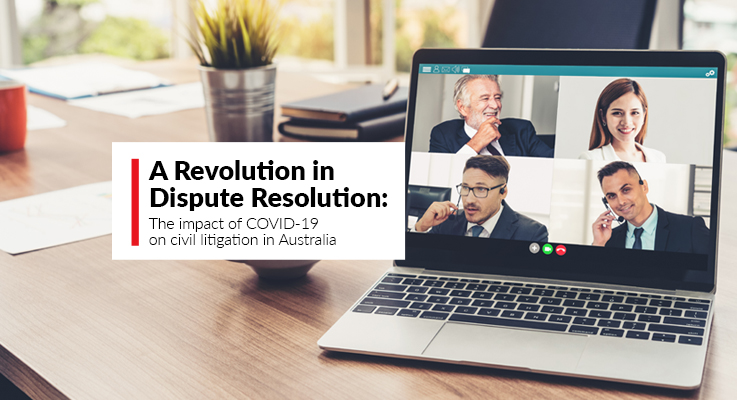
A Revolution in Dispute Resolution: The impact of COVID-19 on civil litigation in Australia
The COVID-19 pandemic has transformed the administration of justice in Australian courts and tribunals, necessitating a comprehensive overhaul of the protocols, procedures and norms of etiquette on which the courts and the legal profession have relied for decades. These changes have been sudden and challenging, but the profession and the judiciary have adapted quickly and have seized on opportunities to enhance access...

Australian Property Law Bulletin highlights
The NSW government introduced new disclosure requirements for developers entering into off the plan contracts for residential developments from 1 December 2019. A Disclosure Statement is now required to be attached to a contract for sale that includes information such as sunset dates, whether development approval has been obtained and details of any strata scheme, community precinct or neighbourhood scheme the lot may...

Beyond COVID-19: The unresolved epidemic of wage theft and underpayments
Employers are currently focused on crisis-management workplace issues, due to the COVID-19 pandemic. Once this crisis has abated, attention will again be focused on the yet unresolved wage theft epidemic. The article sets out key issues that employers need to consider regarding underpayments. Wage theft — a criminal offence Victoria’s Wage Theft Bill 2020 was given its second reading in the Victorian Legislative Assembly...

Calculating time — distinguishing between “at least x days before” and “x days before” an event
Clauses imposing time limits on the performance of contractual obligations are fertile ground for disputes and non-compliance is often raised by parties seeking to terminate contracts. Common phrases such as “at least x days after” or “x days before” are used to describe time periods. Often the differences in meaning are subtle and depend in each case on a construction of the whole of the contract terms in the context...

COVID-19 challenges and responses A university librarians’ perspective
The pandemic sweeping across the world is a global crisis that has shut down cities, closed borders and has created once-in-a-lifetime challenges and changes for many. Here we talk to Kay Tucker, Law Library Manager at Monash University about the unique challenges faced by Australian University libraries. How prepared was your Library to respond to the current crisis in terms of your “work from home” arrangements...

Dealing with personal information security breaches
There is no single way of responding to a personal information security breach. Each breach must be dealt with on its own merits. This will require the business to assess the breach, the risks involved and the possible consequences that may flow from the breach. That assessment must be used to determine what steps the business must take to stop the breach (or stop it from reoccurring), investigate the reasons why the...

Dealing with the impact of widespread disease on the workplace
Various issues arise for businesses when there are risks of widespread disease affecting the workplace, such as in a pandemic. The overarching requirement for a business is to meet its work health and safety duties, which requires it to ensure the health and safety of workers and other persons in the workplace. In doing so, the business will need to direct and consult with its employees, consider discrimination and...
Black Lives Matter: the legalities and politics of Australia’s racial vilification and defamation laws
This blog covers the three of the four main points of The influence of defamation law on the interpretation of Australia’s racial vilification laws (2020, 26 TLJ 34, LexisNexis), by Bill Swannie of Victoria University. Complete this form for complimentary access to the full article published in the Torts Law Journal. How do you balance public interest in fair comment over ridicule and satire and how does this help...

Australian family property law: ‘Just and equitable’ outcomes?
As the COVID-19 healthcare crisis continues to impact family relationships already brimming with high levels of financial stress , the number of couples applying for divorce in Australia is tipped to rise over the next 12 months. Many family law practitioners would agree that a redraft of the Family Law Act 1975 , as recommended by the Australian Law Reform Commission (ALRC) report , is long overdue. Under the current...

Thorne v Kennedy: High Court of Australia confirms the laws of contract and equity underpin pre-nuptial and post-nuptial financial agreements.
In a recent Australian Bar Review article, Lance Rundle of Central Queensland University explores the context in which equitable intervention, namely duress, undue influence and unconscionable conduct, were considered and applied by the High Court of Australia in the decision of Thorne v Kennedy . Furthermore, he analyses the impact of the decision for legal practitioners and parties when negotiating, drafting and signing...

In Conversation with Felicity Gerry QC
Professor Felicity Gerry, QC has dedicated much of her life to advocating for vulnerable individuals in both Australian and international courts amidst sensitive topics such as genocide, terrorism and modern slavery. Felicity is an international QC, at Carmelite Chambers, London and Crockett Chambers, Melbourne, defending in serious and complex criminal trials and appeals. She’s also Professor of Legal Practice at Deakin...
Forensic Evidence Miscarriage of Justice - Infographic
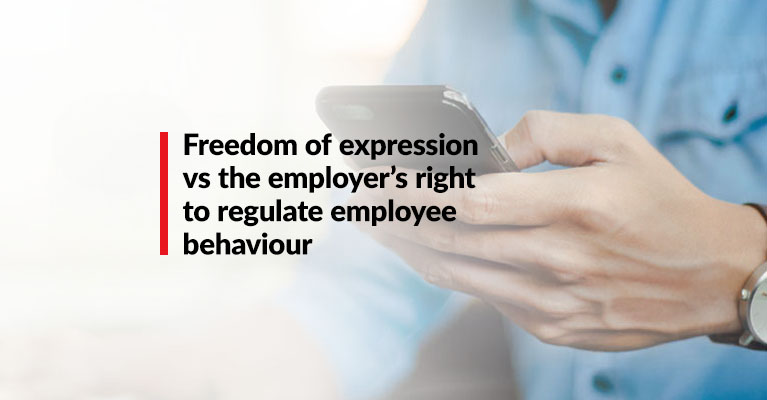
Freedom of expression vs the employer's right to regulate employee behaviour: why the Folau case wasn't about religion
The question of how far an employer's right to regulate employee behaviour extends is one that is vexed for both employers and employees. This battle of rights: an employee's right to hold and express personal beliefs versus the right of an employer to set boundaries on employee behaviour both for the protection of legitimate business interests and employee wellbeing, played out recently following Rugby Australia's termination...

Insolvency law reform - how the new debt restructuring process will work and its pros and cons
The most significant reforms to Australia’s insolvency laws in 30 years are due to commence on 1 January 2021 subject to the passing of legislation. It is important for practitioners to get across key components of the draft legislation released by Treasury to help clients prepare for the changes that are fast approaching, particularly given demand for legal services in insolvency and restructuring is set to rise in...
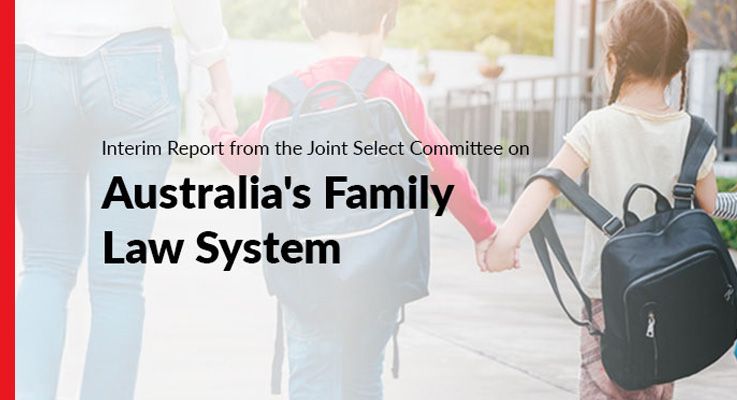
Joint Select Committee on Australia’s Family Law System
Interim report of improvements in family law proceedings – an overview This report itself is 300 pages, and with its seven appendices, extends to over 400. Without making a single recommendation, it makes a substantial contribution to the family law literature. Background The Joint Select Committee on Australia's Family Law System, chaired by Hon Kevin Andrews MP, was appointed in September 2019. The terms of reference...